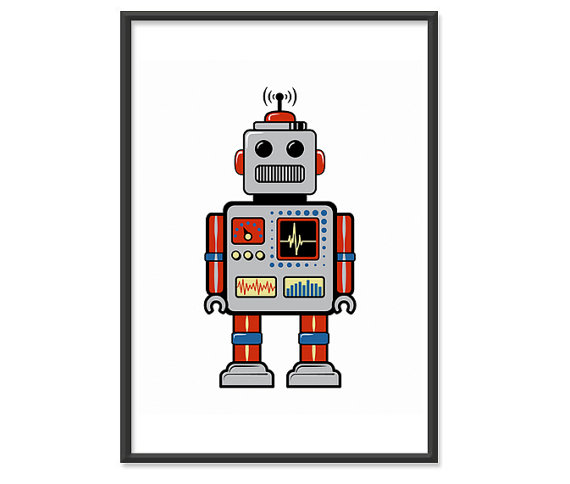Would you listen to a robot boss?
We mostly expect robots, algorithms, and increasingly powerful and sophisticated machine learning systems to continue to replace or at least augment human workers in the actual production of things, like assembling products and moving materials, or even acting in service roles as order takers or personal assistants. We don't, yet, really think of the robot as 'management material', i.e., we are (generally) not in possession of robots with the needed level of sophistication and insight to act as managers - particularly in the areas of coaching and people motivation.
Robots can only do so much, and even if we could program a kind of clever robot manager, would real live human workers actually take direction from a robot? After all, it is pretty hard to get many workers to take direction and respond to their human managers today. But if we could develop robot managers, ones that were somehow better than people managers, the entire project might still fail if no one listens - one of the reasons human managers fail as well surely.
Recently some research conducted at the University of Manitoba set out to explore this question - would people 'listen' to a robot manager, and would they continue to perform an unpleasant task simply at the robot's urging. The experiment consisted of two teams of workers, one managed by a person, and one managed by a small robot, who were tasked with manually re-naming computer files for up to 80 minutes. The workers could quit at any time, but if they attempted to quit prior to 80 minutes, their manager (robot or human), would attempt to convince them to carry on working.
A good summary of the experiment is on the HBR site, and I want to call out the basic conclusion below:
The results, however, were quite surprising. Although the person clearly had more authority, with 86% of participants obeying all the way through to the 80-minute mark, 46% of people did obey the robot until the end. The most striking thing was that people engaged the robot as if it were a person and argued with it, proposed compromises and used logic to try and sway its opinion, with many continuing the task despite this. Post-test, some reported that the robot may have been broken, although they continued anyway, following a potentially-broken robot to do something they would rather not do.
The implications of these results are significant. While it does appear that – for the time being – a human has more authority, on the surface the results show that many people will follow robots placed in positions of authority to do daily mundane things (such as renaming files), even against their own judgment – our participants were informed that they could leave at any time, and many raised this point in argument, but continued regardless. From the research side, these results motivate a great deal of follow up work, for example, we hope to explore how the robot itself (shape, size, voice, etc.) impacts authority, or how such a robot could be used for more positive purposes such as assisting in rehabilitation and training.
Really interesting findings I think, almost half of the workers were willing to take direction and continue a mundane task when prodded by a robot, many even engaging with the robot as if they were akin to a 'real' manager. What also is kind of interesting is that just like many other disciplines where robots have an advantage of human laborers, there are bound to be areas of management too, where the robots will have the upper hand.
Simple kinds of oversight duties, keeping abreast of task completion, engaging and directing workers on what to do now, what to do next, keeping up with and admin side of running a team, etc. - these are all conceivably managerial tasks that could be ripe for automation.
It will probably be some time before you or me are taking orders or direction from a robot, but it also seems like just as robots are replacing work in areas that we never before would have imagined they will eventually take over for (some) managers.
And I bet many of us have had managers in the past we wish would have been robots.
Have a great week!

 Steve
Steve
Reader Comments (1)
Milgram Experiment comes to mind.....